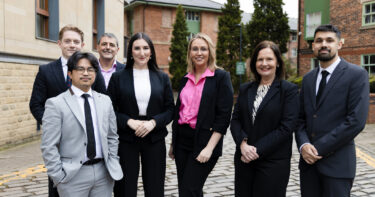
02
Dec 2022
COLLABORATIVE LAW – WORKING TOGETHER TO FIND A RESOLUTION
Traditionally the Court process for resolving disputes that arise from divorce or family disagreements can be a long, expensive and emotionally exhausting experience. Which is why many couples wishing to resolve any disagreements arising from their separation may choose instead to use a collaborative law approach. This gives couples more control over the situation as well as a quicker resolution than going through the traditional Court process which makes this area of law more appealing.
The collaborative process begins with both parties appointing trained collaborative lawyers and signing an agreement to confirm that they do not wish to go to Court and will instead commit to the collaborative law approach. This buy-in early on in the process is crucial to its success. The couple are agreeing that if the process breaks down then they will each have to instruct new solicitors to progress their case to court.
The parties and their collaborative solicitors then attend a series of meetings to discuss issues such as arrangements for children and finances. The meetings are informal and are tailored to be at the convenience of both which is unlike the process when attending court where you are required to attend on a certain day and time.
Other professionals may be included in these meetings to provide advice such as, accountants and financial advisors. Depending on the complexity of the dispute itself, it tends to take 2 to 3 months for the process to be concluded, hopefully with an agreement in place.
The obvious benefits are the ongoing direct communication, negotiating in a open and transparent process and ultimately the lower cost and greater control. Rather than a Judge directing what is to happen when and imposing a final Order on a couple, they can maintain meaningful dialogue to bring about a resolution.
It is worth noting that Collaborative law isn’t the same as mediation. Mediation involves a neutral third party mediator who supports a couple’s discussions around settlement. Each party to that process would continue to have independent advice from their own solicitors but they would attend mediation without them.
If when a couple separates they are both willing to work in a constructive and open way to achieve a settlement, then the benefits of using this approach are considerable. Chadwick Lawrence can provide you with an experienced solicitor, trained and accredited by Resolution in Collaborative law, who can work with you to offer guidance and advice and will reliably represent your needs throughout collaborative meetings.
- Like this ? Share with friends





